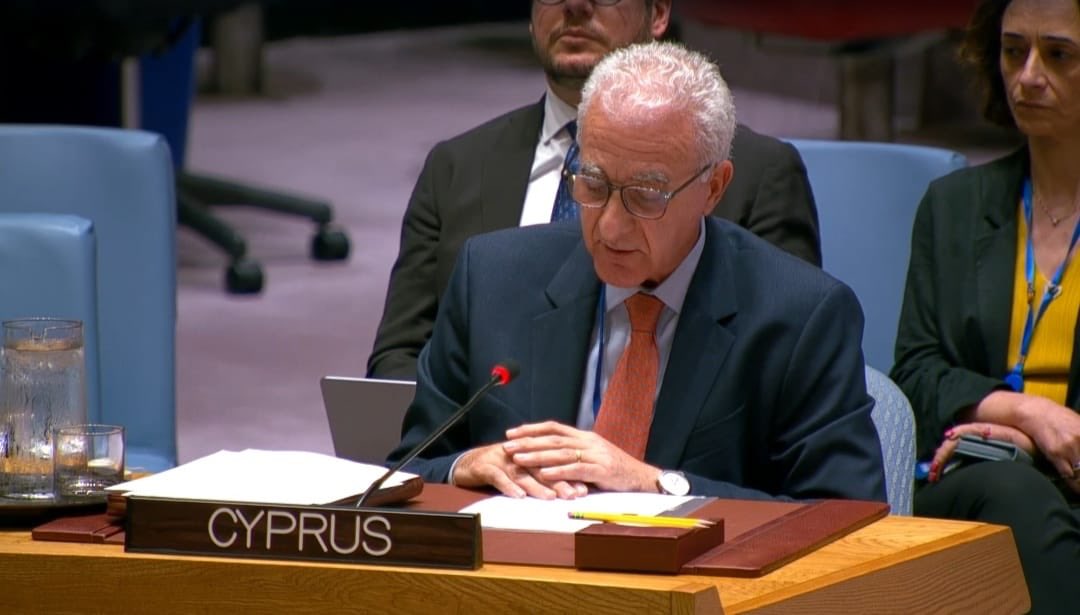Peaceful settlement “is not merely the absence of armed conflict”, Cyprus’ foreign ministry permanent secretary Andreas Kakouris told a United Nations debate on peace and security in the early hours of Wednesday morning.
“It is the just and lasting resolution of disputes based on the rule of law, respect for human rights, and respect for the sovereignty of states,” he said.
He described Cyprus as a “UN-minded country” and a “strong supporter of multilateralism”, before stressing the need for peace and the rule of law, highlighting the strained nature of international relations and the rule of law in some parts of the world at present.
“At a moment when the multilateral system is under severe strain with both the weakening and increasing erosion of trust, and conflicts around the world are multiplying at an alarming rate and extent, we are reminded that the most sustainable form of peace is not forged through force, but through dialogue, diplomacy and international law,” he said.
He then highlighted the case of Cyprus itself, describing the island as a case study of both the promise and the frustration of multilateralism.
“For over five decades, the Republic of Cyprus has appealed to the United Nations for a peaceful resolution to the continued division of our country — a division brought about by the illegal use of force, foreign occupation and the ongoing presence of foreign troops on our sovereign territory,” he said
He added that the UN security council, “through a long list of resolutions”, has called for “the respect of the sovereignty, independence and territorial integrity of the Republic of Cyprus and for the withdrawal of foreign troops”, but that despite this, “these resolutions remain unimplemented, and the Cyprus issue persists”.
This, he stressed, is not a failure of the UN charter itself, but of an “inconsistent application” of it.
“Selective adherence both to international law and to implementation of UN security council resolutions undermines not only the prospects of peace in Cyprus, but the credibility of the multilateral system itself,” he said.
He added, “when security council resolutions are disregarded without consequence, the very foundation of the rules-based international order is weakened and compromised”.
He then said the Cypriot government “remains fully committed” to solving the Cyprus problem “in accordance with international law and the relevant security council resolutions, which provide for a bizonal, bicommunal federation with political equality”.
As such, he said, “we reiterate our call for the resumption of negotiations” and said the continued engagement of UN Secretary-General Antonio Guterres “is both a source of encouragement but also a clear message of the importance attached to continuing the efforts to achieve a lasting solution”.
“We look forward to the time when the Cyprus issue is not a symbol of international inertia, but a demonstration of the enduring power of multilateral diplomacy to bring about peace,” he said.
On this matter, he made reference to last week’s enlarged meeting on the Cyprus problem, which brought together representatives from the island’s two sides, its three guarantor powers, Greece, Turkey and the United Kingdom, and the UN in New York.
While that meeting bore no tangible fruit, Guterres did confirm that President Nikos Christodoulides and Turkish Cypriot leader Ersin Tatar will meet again in New York during the week of the 80th session of the UN general assembly.
This year, the general assembly is scheduled to begin on September 9.






Click here to change your cookie preferences